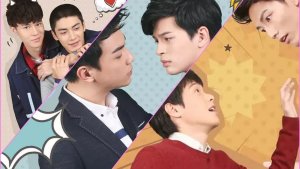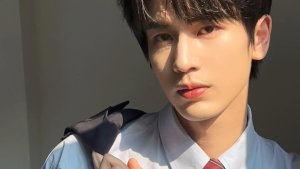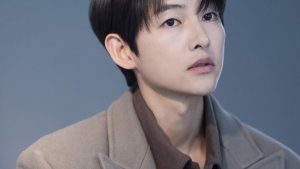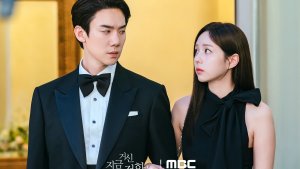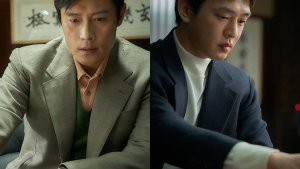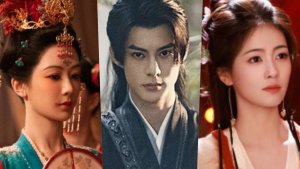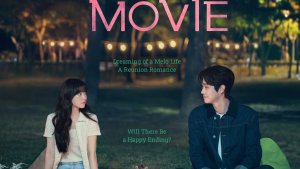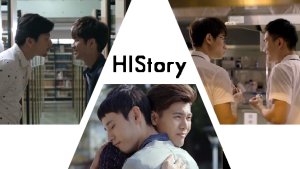 Dissecting HIStory: Part 2
Dissecting HIStory: Part 2
Villains are an odd bunch. Some of them (like evil stepmothers and crotchety, elderly CEOs) are just a pain. Any way you slice it, they’re annoying. They’re evil for either no reason or for a very flimsy reason, and viewers dread their presence on screen. Then there are the other villains. The ones that are charming. The ones that we hate to love and love to hate. Villains with nuance. Villains that draw us in. In my opinion, these are the most effective, entertaining, and enjoyable villains you can find. Today, I’m going to talk about how writers can create these sorts of evildoers to enrapture the audience and give heroes a run for their money.
Spoilers for Defendant and You Who Came from the Stars are hidden under coloured bars. Highlight at your own risk.
Nuance is something that heroes are expected to have, so it’s only fair that villains be held to this standard, as well. Heroes have complicated backstories, fleshed out motivations, and a cast of supporting characters that enhance and help them. In my mind, a villain deserves this depth, too. Of course, writing a baddie is a bit different from writing the good guy. Viewers are assumed to be on the side of the heroes, whereas making a villain able to win over an audience takes some work. I believe this is why black hats often get the shaft; villains are expendable and an easy way to introduce conflict without any work. This is why certain tropes (like the evil stepmother) are so pervasive. Including her as a way to drive apart the main couple is significantly easier than writing in a more complicated way of keeping them apart. Shortcuts to writing about the good guys are irresistible.
So, how do we get away from tropes and stereotypes? Well, writers must be willing to make their villains likeable. Some of the most memorable villains in all of media are, if only surface, decent people. Take Pastor Baek from Save Me. Sure, he’s a terrible person. He reaches depths of depravity rarely seen in KDramas. He has his sexually abusive sidekick, Apostle Jo, an indoctrination dungeon in the woods, and his interest in marrying Sang Mi, even when she was a minor. He’s disgusting… and also very, very nice. This is undeniable. He does things for charity. He’s kind to everyone he meets. He is able to build such a huge following because he knows what makes people tick: kindness, patience, a promise of a better future. He’s evil, but his followers trust him for a reason. If he carried around a sign that said, “I will lock you in my dungeon if you don’t do what I say, and my friend might rape your daughter”, then no one would deal with him.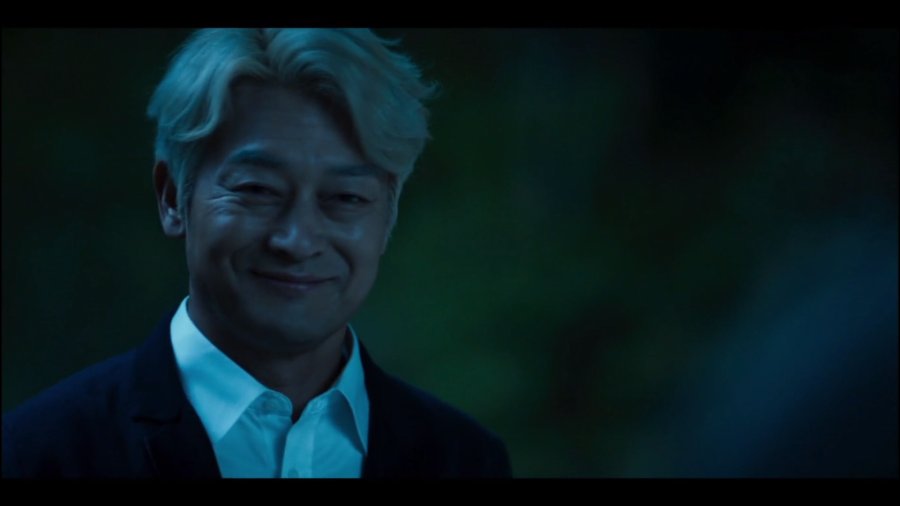
I do have to say that I am not arguing that a villain shouldn’t be evil. Actually, the nastier, the better, in my opinion. But, if they have literally no redeeming qualities, no one will be interested in them. Cha Min Ho from Defendant tosses his brother off a building and murders the hero’s wife in cold blood. Hell, one of the first things we see him do is beat an innocent woman to death with a golf club just for kicks. He also has a soft, adorable relationship with his dead brother’s son. Cold blooded murderer and exceptional father. Odd combo, but it makes Cha Min Ho so much more interesting.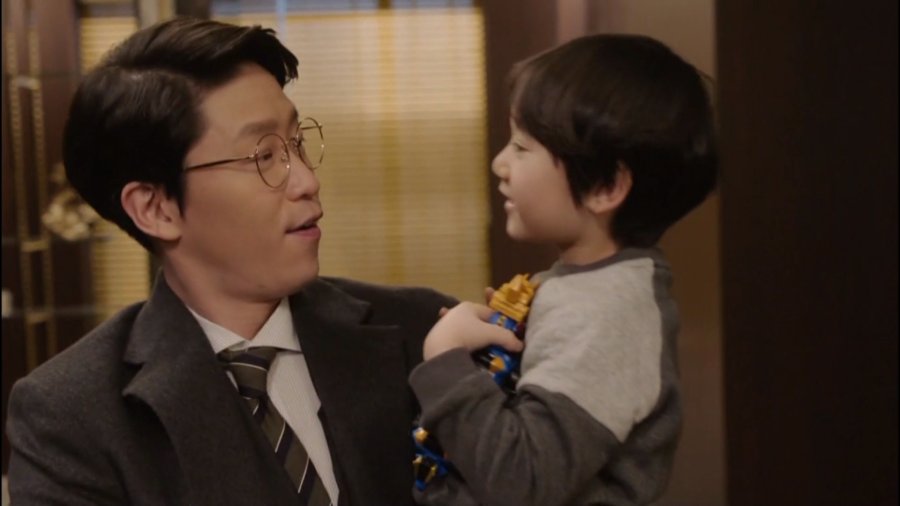
This also connects with the motivations of a villain’s lackeys. If a baddie doesn’t have anything good to offer, then a lackey has no reason to join their team. Gwi from Scholar Who Walks the Night is an excellent example of this concept done well. Choi Hye Ryung is his most notable sidekick. She’s also his love interest, and she’s in love with the idea of becoming powerful. Gwi has a lot to offer to her: the throne, immortality, and himself. Though she's not actually interested in him (it's rather one-sided), what he has to offer is well worth dealing with him. Now, imagine a vampire that has all of these things, but none of them is up for grabs. Then, you’d have Lee Jae Wook from Blood. Despite the fact that his followers seem to get literally nothing from hanging out with him… they stick around. Jae Wook has grand plans, but his gaggle of yahoos get nothing from it. This makes me, as a viewer, not as drawn to him. Gwi is so effective because viewers can imagine themselves being in the love interest’s position. We can see why she would want to stick around. This is the same thing that happens when we really love a hero and we wish we could have them as a love interest or friend. 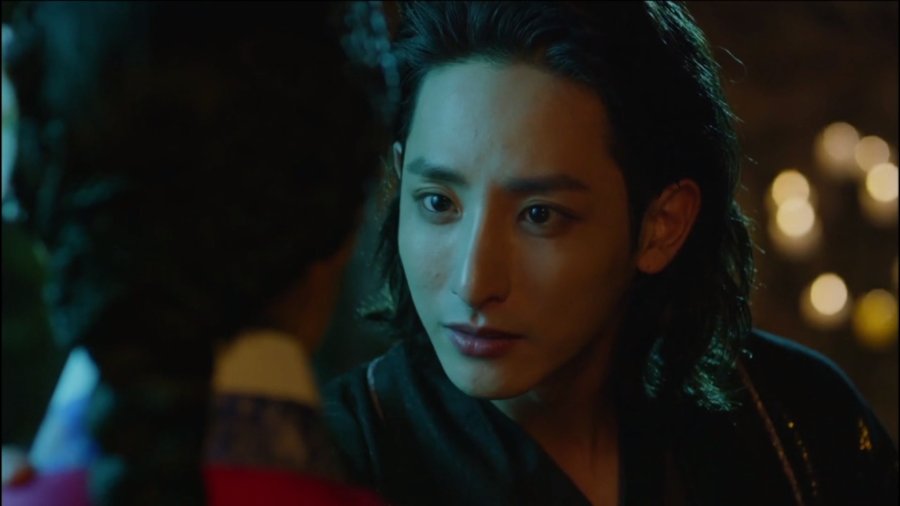
See, villains are characters, too. They aren’t some mysterious “other” that should be untouchable and unlikeable. Lee Jin Pyo (City Hunter) and Choi Won Shin (Joseon Gunman) both have to be bearable enough to be businessmen, Jung Seon Ho (I Remember You) is a lawyer, Lee Jun Ho (I Remember You) is a doctor, and Yoon Shi Wan (Lookout) has lots of friends at school. All of these people, if you worked with them, would be average coworkers, bosses, or peers. These villains work because of this. To step away from KDramas for just a moment, we can look at Jarl Varg from the Norwegian series Norsemen. He likes to kill cuddly kittens for the fun of it and murders my favourite character, but he's also hilarious. We love him not because he's likeable in reality (he's evil and depraved) but because he's likeable from our comfy spot on the couch on the safe side of the TV screen.
Choi Won Shin is a very special example of a well-written tragic villain. A tragic villain is a baddie that only does bad things due to circumstances out of their control. Choi Won Shin is effective as a villain because of this idea of a tragic villain. He works for someone richer than him because he needs to make sure there’s food on the table and money in the bank to support his daughter. He’s a murderer, sure, but many, many viewers (go read the reviews for Joseon Gunman) wanted him to cross over onto “our” team, or be redeemed in some way. He was that sympathetic. I’m not saying that all black hats need to be that way, but having a villain that is basically a hero in a wolf’s clothing is a nice break from routine. 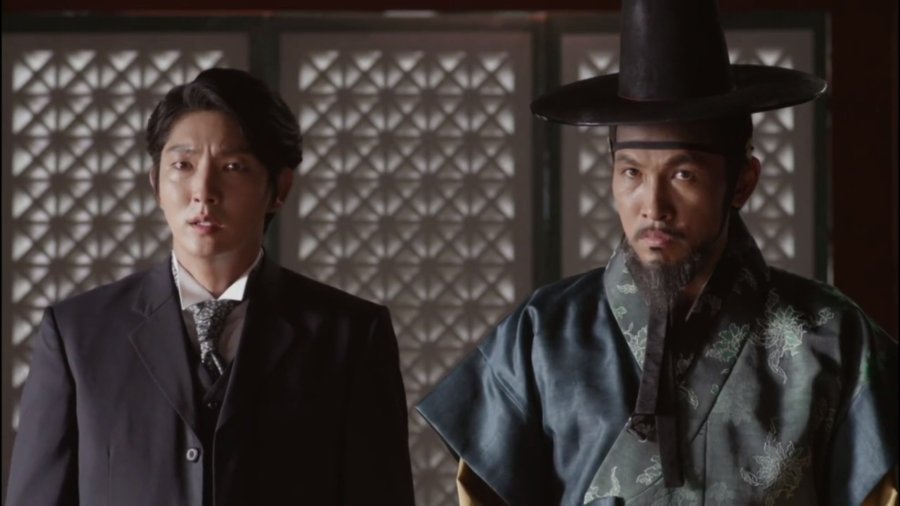
Humanity makes or breaks a villain. Villains with no limits to what they will do can be very good, in doses. Bringing it back to Pastor Baek, we see that almost nothing is beyond him in terms of breaking the moral expectations of society. This moral deficit is broken up, though, by bouts of kindness and charity. He’s interesting because of his kind charade. If he was all evil, all the time, he would not be entertaining. This little bit of humanity makes the medicine go down. Humanity can also be introduced through interesting friendships or romantic relationships. Choi Yoo Jin (The K2) is a perfect example of this, and, honestly, she is a god-tier villain, in my opinion. Allow me to rant about how great she is for a little while.
Yoo Jin is so balanced. She’s perfect with the hero, Kim Je Ha. They are a match intellectually, emotionally, and morally. This has the effect of the series feeling like a battle of wits and strengths. The tension rises every time they conflict because neither one seems to be able to gain any ground. Yoo Jin is also equal parts terrifying and soft. She will do literally whatever is necessary to get what she wants, but she also falls head-over-heels in love with the hero. For every wicked thing she does, she also does something sympathetic. We hate her for all the bad she does and love her because we can sort of see where she is coming from and she likes someone we like. This balance leaves the audience reeling, and a writer should want that. You walk one way, she walks the other. You walk the other way, and now she’s behind you. If you can keep me guessing, in all my jaded years, then you’ve won.
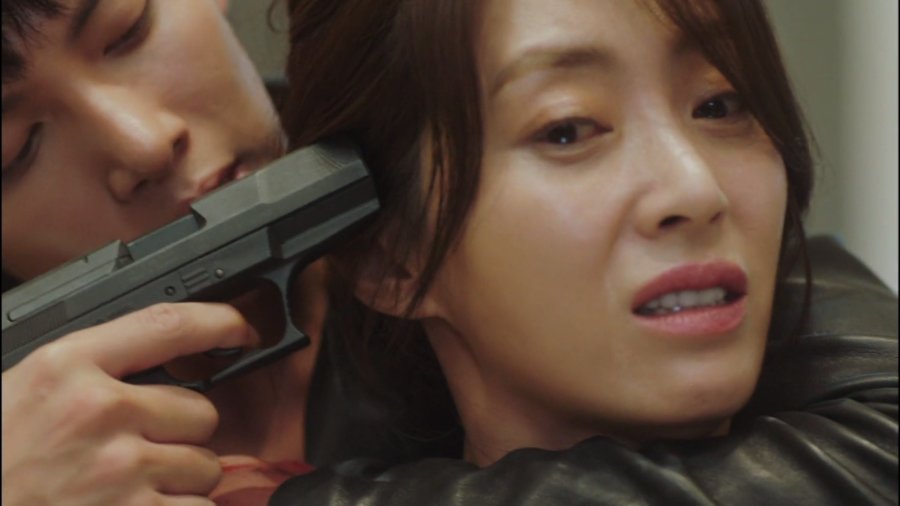
I do want to talk about the idea of a villain that is a good match for their respective hero. It’s rare that one half of the equation can be way overpowered and the story still functions. To clarify what I mean, let’s chat about You Who Came from the Stars’ main villain, Lee Jae Kyung. I’ve talked about him before, and I’m going to talk about him again because I believe that he is an excellent example of what not to do with a villain. His main competition is the super powerful, almost indestructible alien known as Do Min Joon. Min Joon can teleport, he’s super strong, he’s more-or-less immortal, he has telekinesis, and he can stop time. Now, what can Jae Kyung do?
*crickets*
Jae Kyung, aside from being rich and mean, can do nothing. He’s so useless, that the writers actually had to shoehorn in a caveat to Min Joon’s powers which mandates that he is not able to kill anyone without also dying. That is not satisfying. These two are not a match for each other. Jae Kyung never stood a chance of winning. Choi Yoo Jin did. If she’d pushed a little harder, she might have won the Blue House and her man. If Gwi hadn’t twiddled his thumbs quite so much, he could have made himself king. But Jae Kyung? Nothing about him screamed “winner”. I think it would have been a bit better if Jae Kyung had grown in some way to meet the challenge Min Joon presented. He could have worked. He just... didn't. I do have to say that the rampage Min Joon goes on to scare Jae Kyung is one of the coolest sequences I've ever seen in a KDrama. It sure is unfortunate that it makes the villain seem like a total berk.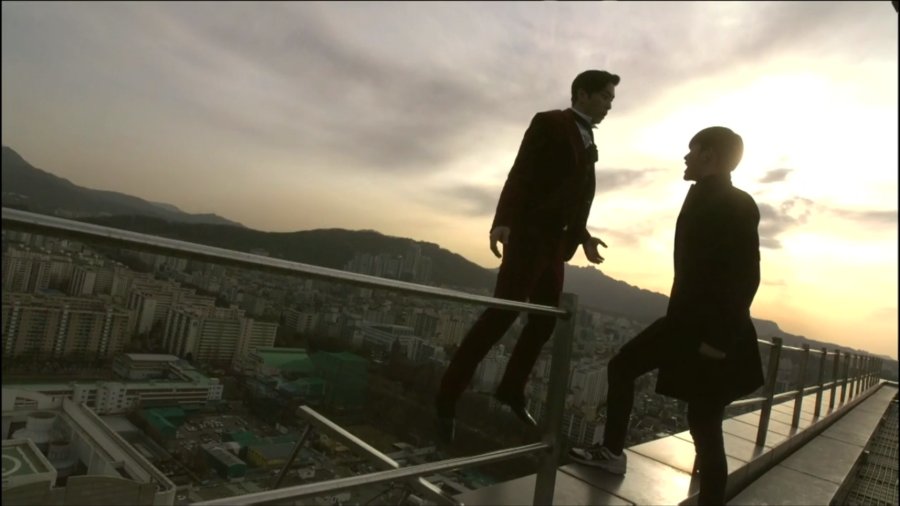
Nam Shin and NamShin3 (Are You Human, Too?) were great for each other. Their conflict is one of the major strengths of the series. They aren’t just a good match because one was created in the other’s image. No, they work because they are opposites. Nam Shin feels very little remorse for the things he does to people and has the cash-flow of a god, but he’s physically weak and has few close relationships. NS3 has access to limitless digital resources, is exceptionally strong, and has a great support system, but he is limited in his ability to be snarky, violent, and in control of his own existence. When one steps forward, the other steps back, and while sometimes, that dynamic can be done annoyingly wrong, it was done just right in this series. Gwi and Kim Sung Yeol are more or fewer opposites in terms of morals and fashion-sense, but I think most of us can agree that one is way more interesting than the other, so they aren’t a good match. 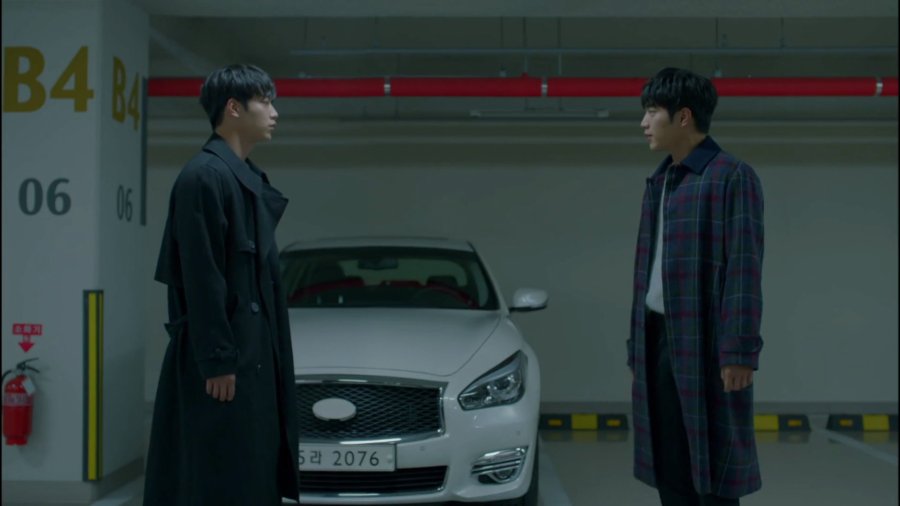
So, in summary, if a writer wants a memorable, entertaining villain, then:
- Give them all the love and attention you gave to the hero. Villains are characters, too.
- Make the villain likeable to someone. I’m not saying to not make them evil. I’m saying to make it reasonable that a layperson would willingly follow them. The other option is to make them so funny that viewers can't help but love them.
- Make them at least a little sympathetic. Give them a child or a love interest or an interesting dynamic with the hero.
- Make sure they work well with the protagonists. If it's clear the entire time which team will win, then you're doing it wrong.
- Don't let villains be a shortcut to an easy conflict. Villains need their own reason to exist aside from ruining the hero's happy-fun-times.
If writers put a little more care and effort into their baddies, many shows would be better off. As a viewer of many different flavours of media, I can confidently say that villains, at their best, are as deserving of screen time as the heroes, and at their worst, absolutely insufferable. More Loki, less Kaecilius. More Magnussen, less Moriarty. More Choi Yoo Jin, less Lee Jae Wook.


